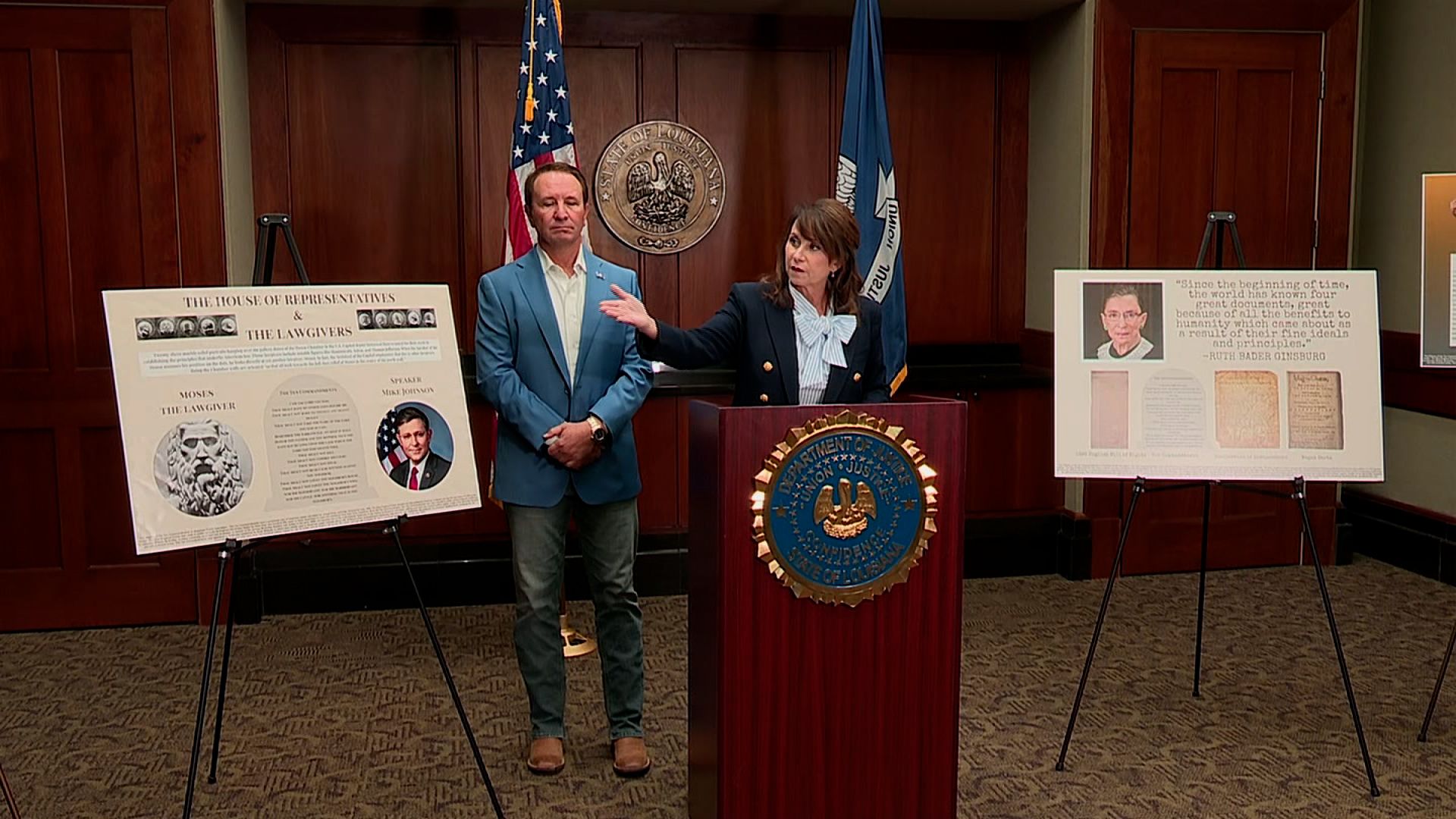A federal judge has temporarily blocked a Louisiana law requiring the Ten Commandments to be displayed in every public school classroom by the new year.
The judge said the challengers have shown that the law is likely unconstitutional, citing the plaintiff’s claims that it violates the First Amendment in an order granting a preliminary injunction Tuesday. The injunction temporarily prevents the law from being implemented.
The law, H.B. 71, signed this summer by the state’s Republican Gov. Jeff Landry, requires all public K-12 and state-funded university classrooms to display a poster-sized, state-approved version of the Ten Commandments with “large, easily readable font.”
The law was met with backlash from opponents who say it violates First Amendment rights and pressures students into religious observance.
The American Civil Liberties Union (ACLU) and other civil rights groups brought the lawsuit on behalf of nine “multi-faith families” with students enrolled in Louisiana public schools.
“H.B. 71 is a direct infringement of our religious-freedom rights, and we’re pleased and relieved that the court ruled in our favor,” Rev. Darcy Roake, a plaintiff in the case said Tuesday in a statement. “As an interfaith family, we expect our children to receive their secular education in public school and their religious education at home and within our faith communities, not from government officials.”
The lawsuit names state Superintendent of Education Cade Brumley, several other Louisiana State Board of Elementary and Secondary Education officials and some local school boards. Brumley previously told CNN he looked forward to implementing the law.
Just days out from the historic 2024 presidential election, the timing of the ruling is significant, Alanah Odoms, executive director of the ACLU of Louisiana told CNN Tuesday.
“With so many aspects of democracy I think in peril, it feels really assuring and affirming that the Federal Court really articulated a very clear and strong first amendment right that shall not be violated,” she said.
Odoms said the order clearly states that Louisiana families have the protection under the establishment clause of the US Constitution, which says that “Congress shall make no law respecting an establishment of religion.”
In 1980, the US Supreme Court ruled that a similar Kentucky law violated the Constitution’s establishment clause, according to the Associated Press. In recent years, similar bills requiring the Ten Commandments be displayed in classrooms have been proposed in states including Texas, Oklahoma and Utah, though none have gone into effect, AP reported.
While this is a win for opponents of the law, Louisiana Attorney General Liz Murrill said the fight is far from over.
“We strongly disagree with the courts decision and will immediately appeal, as HB 71’s implementation deadline is approaching on January 1, 2025,” wrote Murrill in a statement released Tuesday. “This decision only binds five of Louisiana’s many school boards. This is far from over.”
The law would bind East Baton Rouge Parish, Livingston Parish, St. Tammany Parish, Orleans Parish, and Vernon Parish School Board.
Odoms said she anticipates an appeal from the defendants and a continued legal battle that could potentially reach the US Supreme Court.
“I don’t know what the United States Supreme Court will do, but I do know that we will live in a different world if this case is taken up by the court and overturned,” Odoms said.
Odoms said that overturning the Establishment Clause would set a very dangerous precedent.
“It is a gateway to allowing the government to be able to make decisions about private aspects of people’s lives,” said Odoms, “If the first amendment doesn’t protect people’s right to choose a certain religion you could see state sanctioned religions across the country.”
Odoms cited that the United States was founded on the separation between church and state, which prevents the government from being able to harass, coerce, or incarcerate people based on their religious beliefs.
“Our young people experienced a lot of trepidation awaiting this ruling frankly because they were waiting to see whether these posters were going to go up in every classroom,” said Odoms. “Teachers were worried about what they were going to tell their students how they were going to continue to create an inclusive classroom environment for children that were not Christian or did not follow the Ten Commandments.”
CNN has reached out to gov. Landry for comment.
CNN’s Dianne Gallagher, Jaide Timm-Garcia, and Caroline Jaime contributed to this report.




